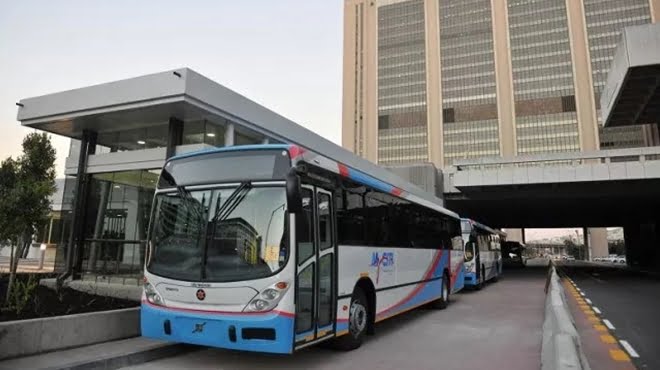R816 million has been earmarked for Phase 2A of the MyCiTi service between the Metro South-east and Claremont and Wynberg.
The City of Cape Town has budgeted these funds, from National Treasury in order to complete the infrastructure of the new MyCiTi bus route.
“Once fully rolled out, Phase 2A of the MyCiTi service will benefit approximately 1,4 million residents from the Metro South-east – from the outskirts of Khayelitsha and Mitchells Plain to the urban centres of Wynberg and Claremont. The proposed Phase 2A route will provide residents in the Metro South-east with a direct, efficient and scheduled public transport service and it will spur economic opportunities, new developments and urban renewal across 35 communities along the way”, said the City’s Mayoral Committee Member for Transport and Urban Development, Councillor Brett Herron.
Herron added that Phase 2A compromises of two trunk services which are generally along dedicated red roads, supported by a network of other routes in mixed traffic.
With the implementation of the new corridors, a number of suburbs will benefit.
These suburbs include: Philippi East, Ikwezi Park, Nonqubela, Khayelitsha CBD, Litha Park, Mandela Park, Harare, Kuyasa, Enkanini, Manenberg, Sweet Homes, Gugulethu, Brown’s Farm, Nyanga, Philippi, Crossroads, Turf Hall Estate, Lansdowne, Hanover Park, Lentegeur, Beacon Valley, Eastridge, Mitchells Plain CBD, Tafelsig, Claremont, Kenilworth, Rondebosch East, Kenwyn and Crawford.
The Councillor said that the City is still awaiting the final approval with respect to the Wynberg section.
Once this is obtained, then the suburbs of Wynberg, Plumstead, Royal Cape, Ottery east, Ottery and Wetton will also benefit from the new corridor.
On the expected completion of this new corridor, Herron said that the City of Cape Town’s Council approved the conceptual design of the MyCiTi route T12 between Mitchells Plain and Claremont; and a portion of route T11 from Khayelitsha to the intersection of Strandfontein Road and New Ottery Road in Ottery.
Meanwhile, the City’s Transport and Urban Development Authority (TDA) is currently busy with the detailed design process.
Herron added that some of the roadworks in preparation of the Phase 2 A and other future phases have already proceeded along Strandfontein Road and Stock Road.
The Strandfontein Road section has already been completed.
“It is important to state that it will take many years to get Phase 2 A fully implemented and operational, based on financial allocations from the National Government and the extent of the infrastructure required for this next phase of the service”, said Herron.
When asked how many jobs will be generated by the Phase 2A project, Herron said:
“In general, the City of Cape Town’s contracts with all appointed contractors stipulate that 2% of the contract value (excluding VAT) must be spent on temporary employment opportunities for local residents and services/products from local subcontractors.
Thus, all contractors appointed for City-related projects are obliged to provide temporary employment opportunities to a number of local residents whose names are on the subcouncil database, and the same applies to local subcontractors for goods and services. Only those whose names are on the local subcouncil database will be considered for these opportunities”.
On the operation of the MyCiTi bus routes thus far, Herron said he is pleased with the uptake of the MyCiTi bus service has been exceptional since its inception in May 2010. “This serves as a confirmation that we have changed the way people commute in Cape Town, and it also motivates us to strive for even higher standards”, said Herron.
According to Herron, the MyCiTi service has grown tremendously and increased over the past year.
The number of passenger journeys increased from 175 868 in February 2017 to 253 411 in February 2018. This is an increase of 77 543 passenger journeys or 44% within 12 months alone.
On average, 1.7 million passenger journeys were recorded for the MyCiTi service in February 2018 with an average of 72 070 passenger journeys being recorded during the morning peak hour periods on weekdays.
“With the roll-out of the service hundreds of thousands of commuters from lower-income households now have access to decent, safe, and affordable public transport.There is always room for improvement and we are working very hard in addressing issues that commuters may bring to our attention. That said, I am very proud of what we have achieved with the MyCiTi service to date and I am excited about extending the footprint of the service within the Metro South-east.”.
However, Herron warned that while the roll-out of Phase 2A of the MyCiTi service to the Metro South-east takes priority in the short-term, the City could consider rolling out the service to other areas across Cape Town much sooner, should the City receive more funding from the National Treasury.
